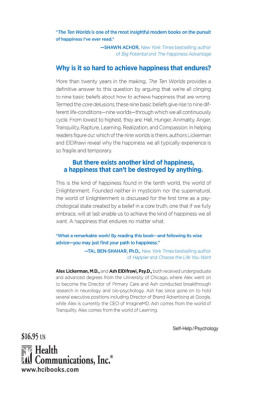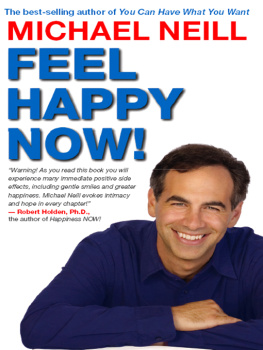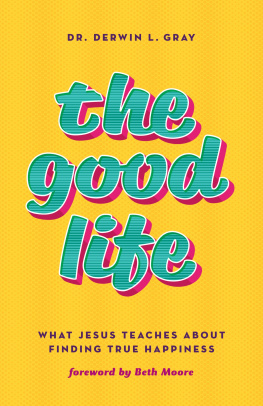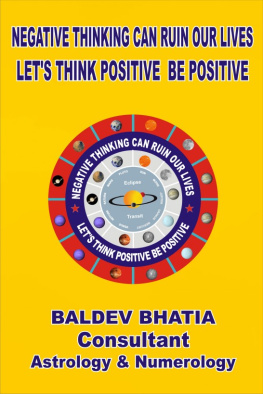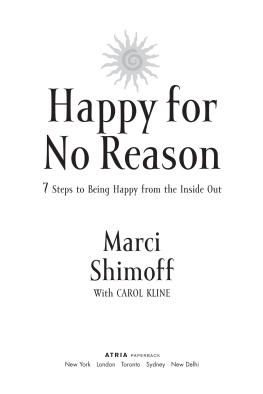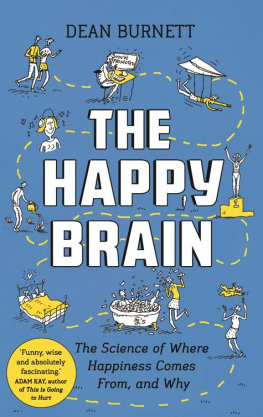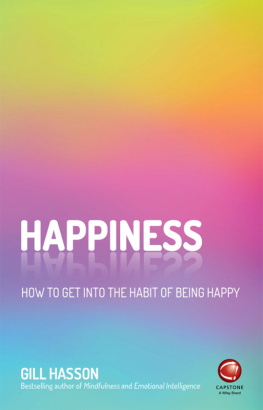Praise for The Ten Worlds
The Ten Worlds is one of the most insightful modern books on the pursuit of happiness Ive ever read. Alex and Ash expertly weave interesting research, ancient wisdom, and real world examples to create a better framework for understanding how we pursue happiness and whats really getting in the way of our finding it, yielding numerous valuable a-ha moments about ourselves and our loved ones.
Shawn Achor, New York Times bestselling author
of Big Potential and The Happiness Advantage
Some books tell great stories but arent grounded enough in research to be believable. Some books have great research but are too dry. This one is different. Captivating stories. Compelling research. I am in awe of how well-written, fascinating, and valuable The Ten Worlds is. A must read for all interested in finding the path to happiness and enlightenment.
Dave Kerpen, New York Times bestselling author
of The Art of People and Likeable Social Media
What a remarkable work! What obstacles, traps, or delusions get in the way of your happiness? The Ten Worlds will not give you easy answers to this question, but real ones. By reading this bookand following its wise adviceyou may just find your path to happiness.
Tal Ben-Shahar, New York Times bestselling author
of Happier and Choose the Life You Want
In this highly informative and eminently readable book, Drs. Alex Lickerman and Ash ElDifrawi argue convincingly that happiness isnt determined by what happens to us, but rather by what we believe about what happens to us. Filled with compelling stories, backed up by up-to-date research, and sprinkled with timeless wisdom, The Ten Worlds is a book that provides both practical insights and actionable steps for finding happiness that cant be destroyed by anything.
Steven Julius, Ph.D., President and CEO, Human Resource Consulting Group
and former Director of Player Program Development, Chicago Bulls
If you are on a path to seeking happiness, this is the book for you. The authors brilliantly and creatively mix the evidence of science and the narrative of story to uncover what we need to know to experience greater happiness in our lives. Many of my clients and students believe that happiness is out of reach, but I shall recommend this book to them to let them know that its within their reach. Ash and Alex are to be congratulated for guiding their readers to experience greater happiness in their lives and in the lives of others.
Marty Martin, Psy.D., associate professor, DePaul University,
speaker, and author of Taming Disruptive Behavior
In The Ten Worlds, Alex and Ash give you the tools to protect you from what can be your worst enemy: your own mind. They use everything from neuroscience to Buddhism to metacognition to guide you along the path toward happiness.
A.J. Jacobs, New York Times bestselling
author of The Year of Living Biblically
Library of Congress Cataloging-in-Publication Data is available through the Library of Congress
2018 Alex Lickerman and Ash ElDifrawi
ISBN-13: 978-07573-2041-5 (Paperback)
ISBN-10: 07573-2041-4 (Paperback)
ISBN-13: 978-07573-2043-9 (ePub)
ISBN-10: 07573-2043-0 (ePub)
All rights reserved. Printed in the United States of America. No part of this publication may be reproduced, stored in a retrieval system, or transmitted in any form or by any means, electronic, mechanical, photocopying, recording, or otherwise, without the written permission of the publisher.
HCI, its logos, and marks are trademarks of Health Communications, Inc.
Publisher: Health Communications, Inc.
3201 S.W. 15th Street
Deerfield Beach, FL 334428190
Cover design by Heath Miller
Interior design and formatting by Lawna Patterson Oldfield
Ash
For my parents, Ahmed and Rafiah
Alex
For Rhea


T hanks goes first to our agent, Stephany Evans, who was as excited about seeing The Ten Worlds make it out into the world as we were, and who found it a great home with HCI. Thanks also to our editors at HCI, Allison Janse and Candace Johnson, both of whom couldnt have been more supportive, collaborative, creative, and, above all, patient in helping us turn the manuscript into a published book. Thanks to Heath Miller for designing both the cover and the Ten Worlds diagram.
Thanks also to the following people who read and provided feedback on early drafts: Dave Albert, Kate Brennan, Jerry Coyne, Sheri Davis, Cheryl Graeff, Mark Ingwer, Steve Julius, Michael Small, Janet Lickerman, and Michael Lickerman.
Were also grateful to the nine patients whose stories appear in the pages that follow for allowing us not only to learn from their stories but also to tell themalbeit in a deeply disguised formto help others learn as well.
From Ash: I owe a special thanks to my wife, Amy, and my kids, Allison and Aidan, for all the nights and weekends they graciously allowed me to devote to writing. I owe an even greater debt of gratitude to my co-author and best friend, Alex. This book stands as a tribute to the power of our friendship, a friendship thats proven itself to be as enduring as the type of happiness we argue its possible to achieve.
From Alex: Thanks goes to my co-author, Ash, who first suggested the idea to write The Ten Worlds some twenty years ago and without whom this book would never have existed. Thinking about, debating, and refining its principles with him over the last two decades has been one of the most challenging and gratifying experiences of my life. I consider it a privilege to call him my best friend.
I also owe a great debt of gratitude to my son, Cruise. This time around he was old enough to recognize how much time my writing stole from him. That he was willing to sacrifice as much of it as he was to permit me to do something I not only love but also consider important makes me prouder of him than I know how to express.
I owe the greatest debt of gratitude, though, to my wife, Rhea. The sacrifices she made for my first book were small in comparison to the ones she made for this one. Im more grateful for her love, support, and patience than I can say.
While the key events depicted in
each of the stories in this book are based in fact,
the names, identifying details, and histories
of the people involved have been altered to
preserve their privacy and protect
their confidentiality.

N ot long after I first began working as a primary care physician, my best friend, a clinical psychologist named Ash ElDifrawi, told me about a patient of his named April, whod recently let him know that shed been thinking about killing herself.
During her first two years in therapy with him, shed been moderately depressed but mostly functional. Then a year and a half ago, her husband announced he was leaving her for another woman. Devastated, she begged him to stay, vowing to do whatever it took to make their marriage work. He refused, saying it was too late, and then moved out. In the months that followed, she reached out to him multiple times but to no avail. When she finally worked up the courage to confront him in person, he greeted her not with anger or even dismay, but indifference. He seemed switched off, as if shed become just one of a million faceless people whose existence he hardly noticed. He left her, in short, with the impression that their relationship hadnt merely ended but had never actually existed in the first place.
Next page
